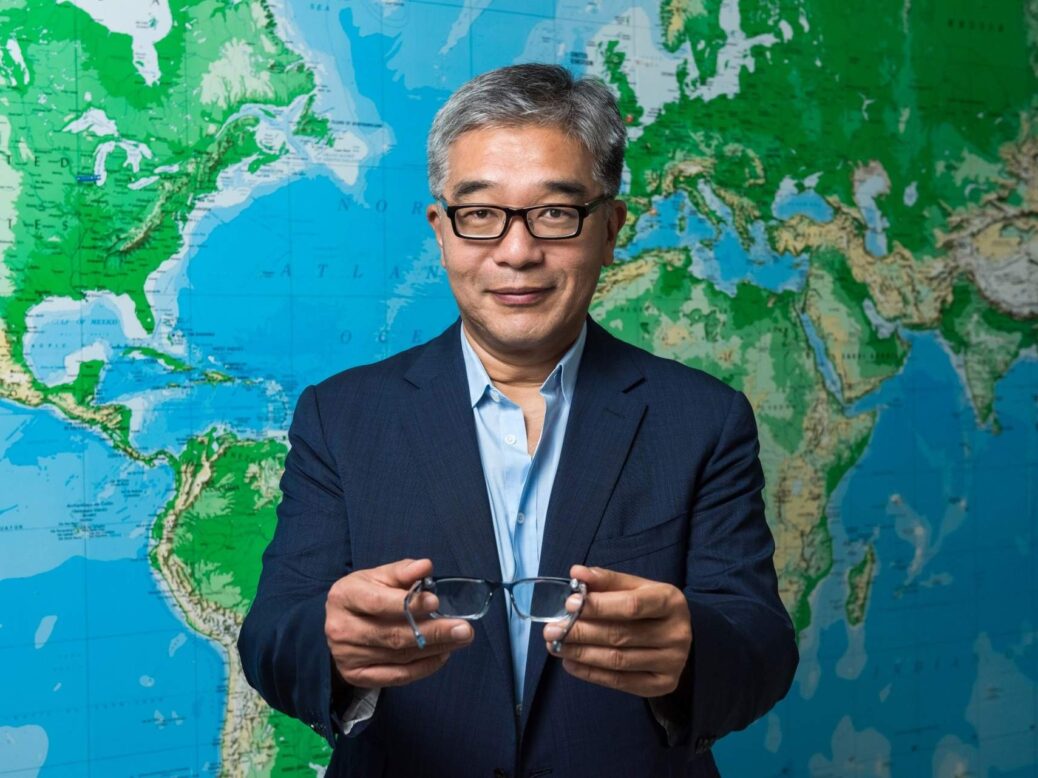
One man is on a mission to improve the vision of billions of people in need
James Chen, Co-founder of the campaigns Vision for a Nation and Clearly
My grandfather started a manufacturing business in Shanghai and moved to Hong Kong before the communist revolution. To cut a long story short, he and my father moved the business to Africa, where it has been since the early Sixties. I went there at the age of three, and literally lived across the road from the factory. Dinnertime conversation was a lot about the business.
My family emigrated to the US when I was 14. I stayed for 15 years before ending up back in Hong Kong and helping my family set up a family office. We’re probably the earliest formally organised family office in Asia, having been set up in 1994. Creating the Family Foundation – in 2003 – turned out to be the last document my father signed before he passed away, so it’s particularly memorable for us.
***
My late father experienced famine as a child, so he wasn’t just a cheque-writing philanthropist. He put a lot of his time and effort into trying to understand what is needed and what he could do besides his money. I was very inspired by that. I didn’t discover that I had a vision problem until I went to take a driving test in the US.
When I got my glasses, I realised: ‘Oh my God, what have I been missing?’ Because my family has been in business in Africa and I’ve spent a lot of my career in Asia, I had a sense that not many people wear glasses. But is that because they don’t need glasses or because they don’t have access to them?
I came across a professor who had invented this pair of adjustable powered lenses in Oxford, and I felt that these lenses would help to solve the distribution problem, which is always a very big challenge in the developing world. But there were a lot of other barriers, which led me to say: ‘OK, I need to set up a dedicated NGO.’
So I formed Vision for a Nation. We decided to focus our efforts on Rwanda, and by the end of 2017 we had partnered with the Ministry of Health there to train 2,500-plus nurses in every one of the 504 health centres throughout the country. In three days, nurses were taught how to do an effective screening.
We have screened 2.5 million Rwandans and dispensed several hundred thousand pairs of glasses, made over 100,000 referrals and dispensed over a million doses of eyedrops. By the end of 2017, we handed the programme back to the Rwandan government.
***
This is going to be a problem in other countries, and to do one country at a time would take 1,000 years. So we settled on the idea of the Clearly campaign. The issue of uncorrected poor vision affects 2.2 billion people in the world; Clearly is a campaign to convince government leaders about the issue of access to vision correction.
The Rockefeller family have fostered what I call ‘catalytic philanthropy’. This is the idea that you should persevere on an issue over a long period of time and develop domain expertise.
You have to accept that there are going to be a lot of failures along the way, but this is a unique role that HNW philanthropists can take. Because we are the owners of capital, we can take risks that others are not able to take. When things fail, we absorb the cost of those failures.
***
A lot of people, probably rightly so, are throwing a lot of resources at the Covid problem. But you have to differentiate between them and someone like Bill Gates, who was talking about the issue of a pandemic in 2015.
This really highlights the point of catalytic philanthropy: most philanthropic donors are very reactive, and there is a role for that. But while we’re seeing a lot of people throwing money at Covid, it’s kind of too late.
If you don’t have that domain expertise, as someone like Bill Gates does, you’re not going to get the highest impact for your dollars.
Other issues, like climate change, deforestation and so many others, take long-term perseverance, domain expertise and high-risk capital to be able to come up with solutions. Covid-19 is a good reminder of this.
To find out more about James Chen, click here
Read more
The Charities Aid Foundation: ‘Covid-19 has been a huge shock to the charitable sector’
Dame Steve Shirley CH on Zoom, philanthropy and her upcoming biopic
Without philanthropists, the Old Vic ‘would be a car park or a block of flats’







